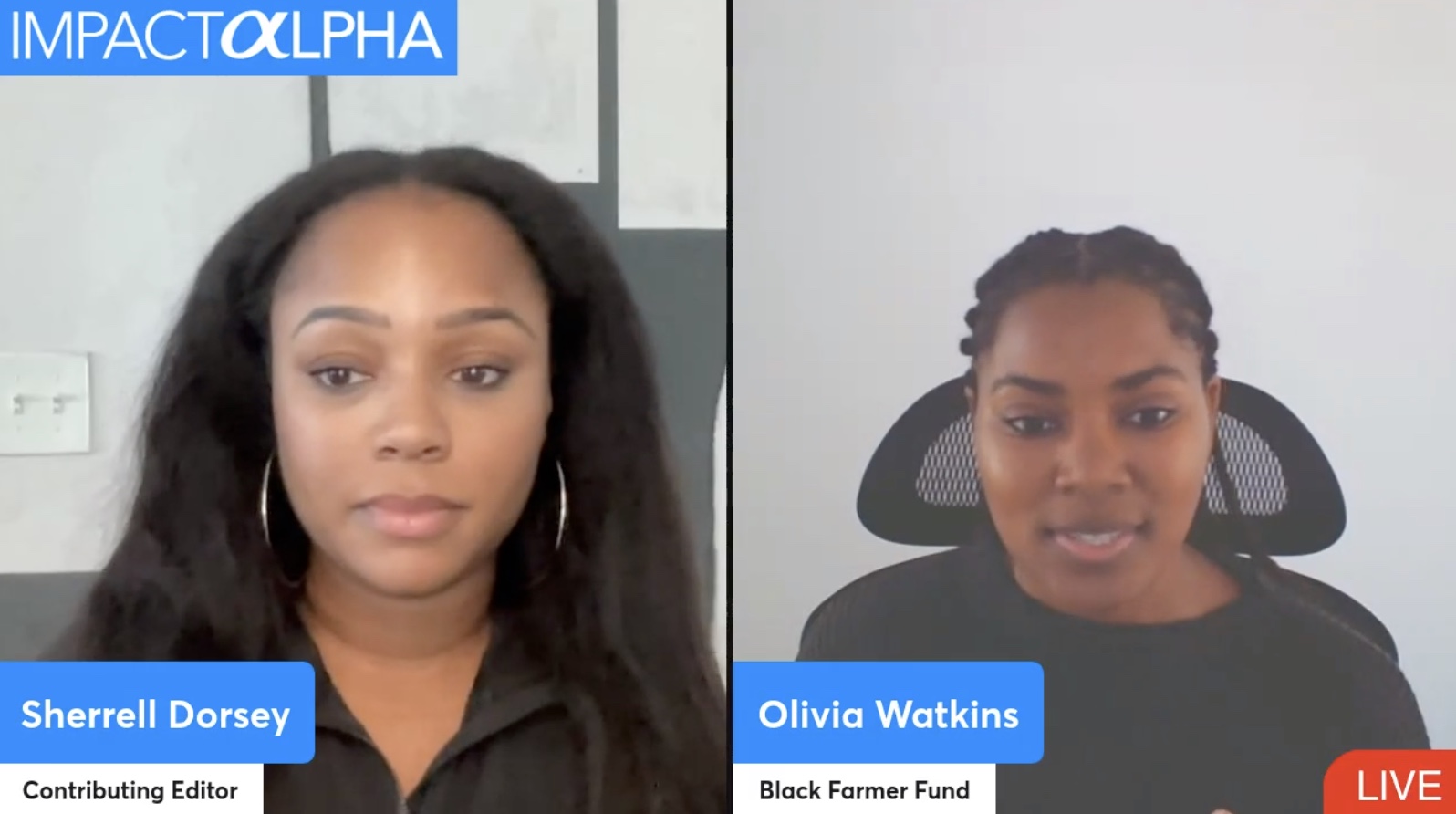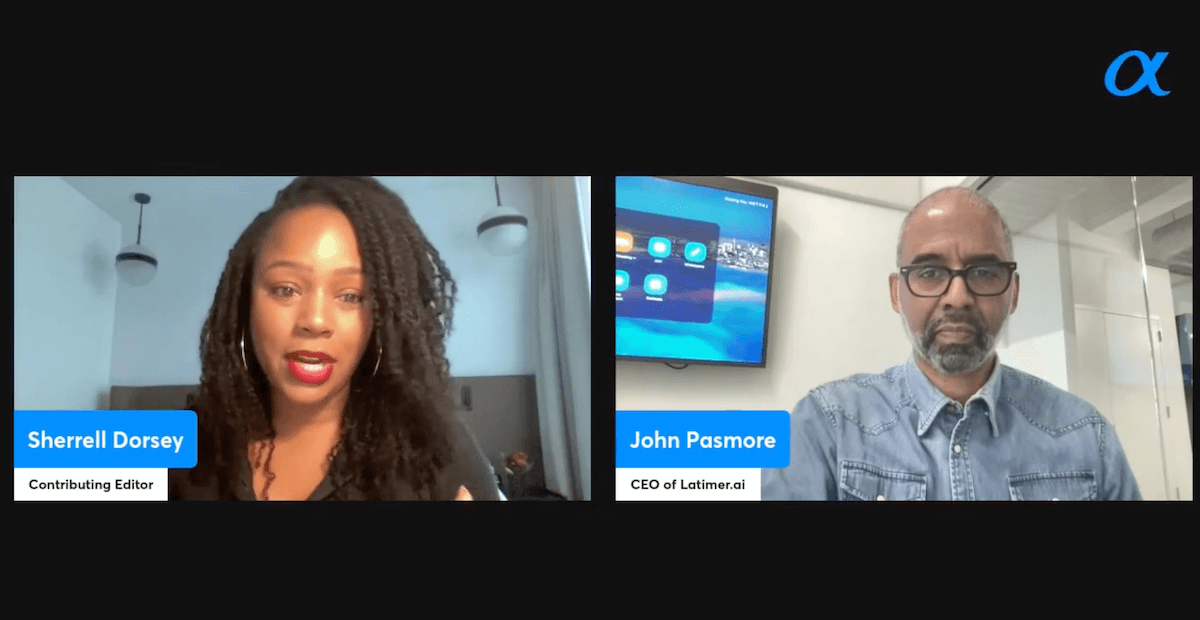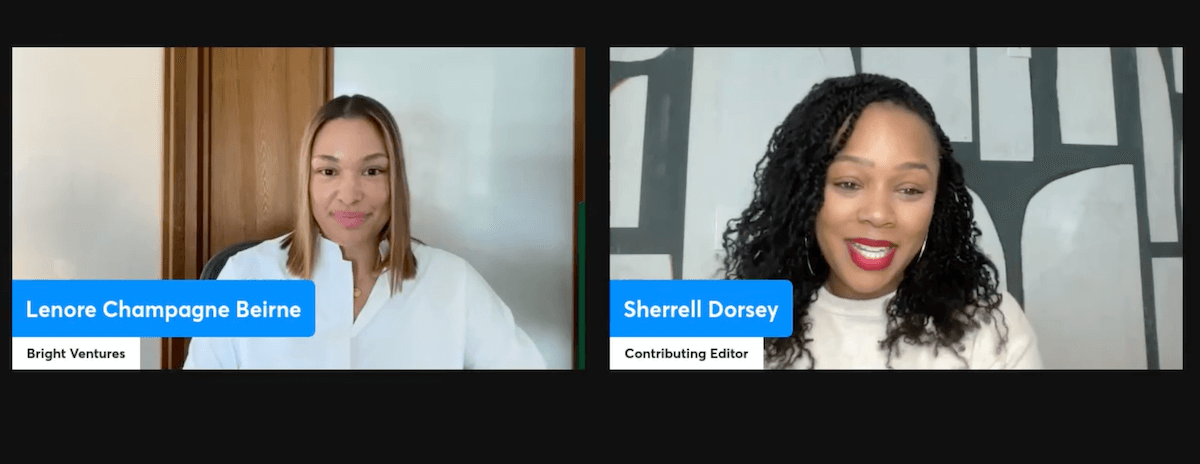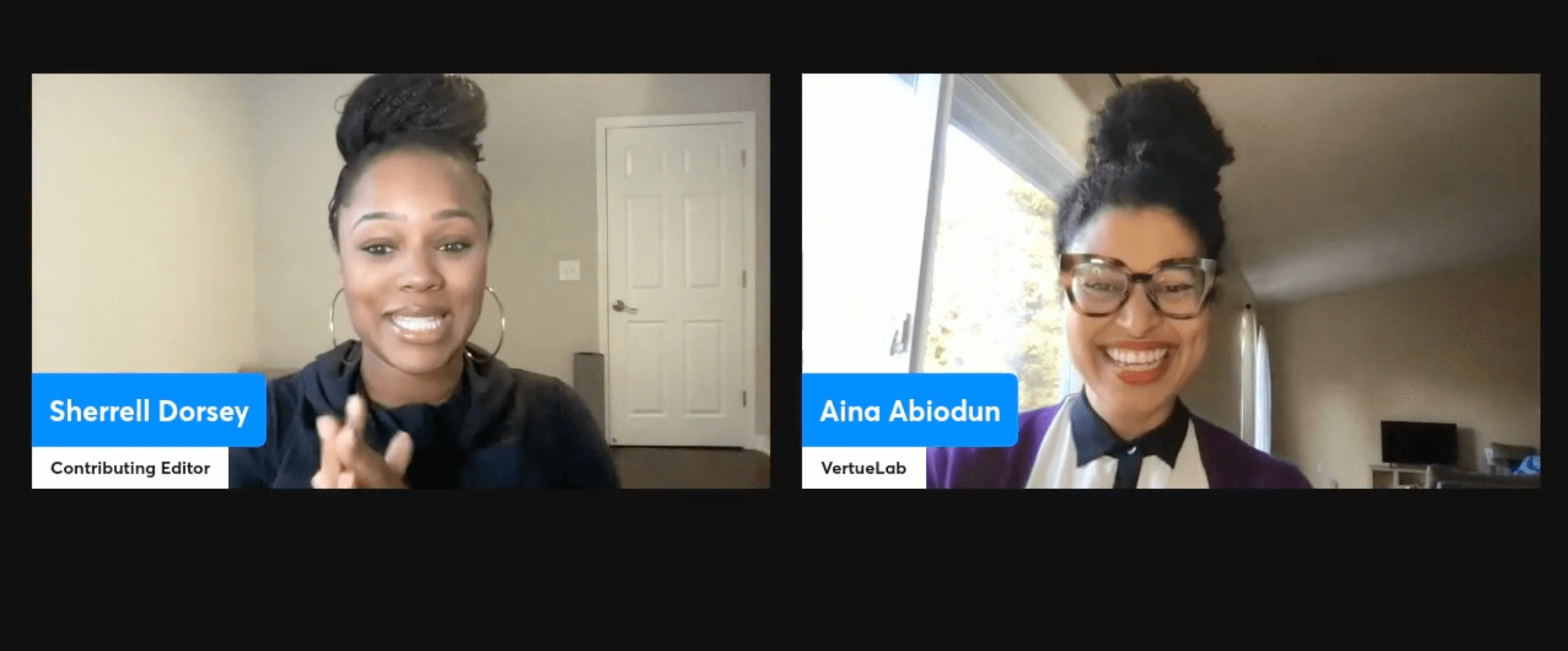ImpactAlpha, Oct. 6 – How we grow our food matters, but for over a century, “who” gets a fair shot at owning and profiting from the farming systems that produce our food has been widely inequitable.
Today Black farmers represent just 1.4 percent of all American farmers. Correcting the dilution of Black farmer representation since the 1910s has been the subject of legislation like the Justice for Black Farmer’s Act reintroduced into Congress this year; and a PBS documentary Gaining Ground on the land loss of Black Farmers from 16 million acres in 1910 to just 5 million acres owned today.
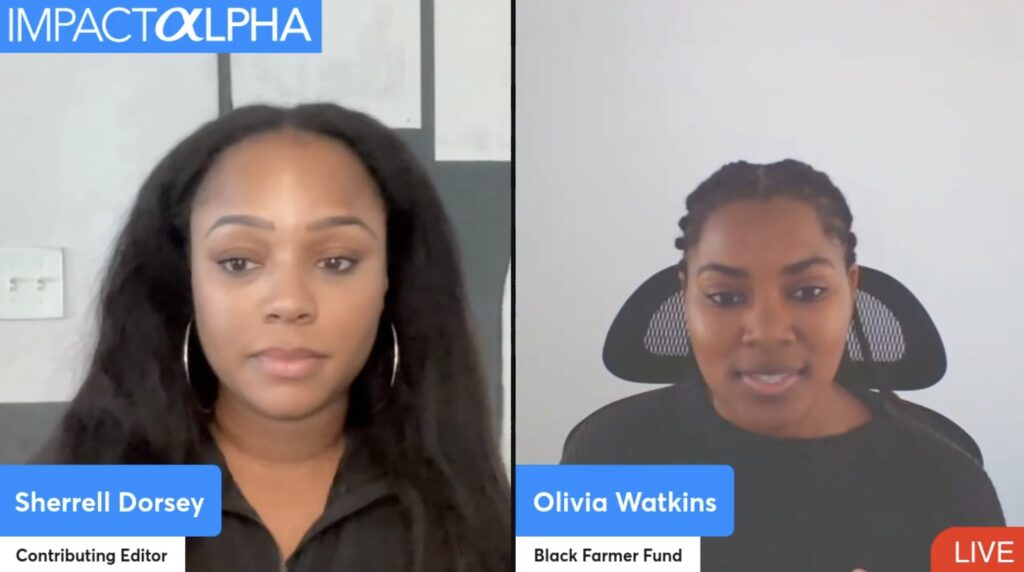
In this week’s Plugged In conversation, I sat down with Olivia Watkins, co-founder of the Black Farmer Fund. which recently announced the raise of its $11 million fund to support Black farmers, caterers, restaurant owners, food distributors, and others within the food system across the northeast.
The fund aims to meet the modern needs of Black farmers and food entrepreneurs with affordable capital and technical assistance.
Reparative capital
Black Farmer Fund provides grants and low-interest loans to Black farmers with the ethos of lending and support that favors the farmer and pushing against predatory or extractive financing.
In New York State alone, Black farmers make roughly -$906 annually while their white counterparts white farmers make $42,000. “There are different reasons and broader systemic ways that have created this scenario.”
Funding support provides farmers with operating cash to grow. BFF’s technical assistance helps connect farmers to vendors and market opportunities to sell their produce and goods.
Community collaborative
Unlike traditional funding structures, Black Farmer Fund is built on community-led collaboration. Grassroots organizing across the nine northeastern states they serve remains a large part of their work and how the investment team actively connects with potential investment opportunities.
“We bring in folks who represent the community we are serving to sit on the investment committee,” Watkins shared about the non-traditional model. “They are the ones who are responsible for making the decisions.”
To further foster trust within the region, the team helps to host abundance festivals and farmer’s markets, providing platforms for farmers to sell and build connections. They also work alongside BIPOC-led organizations like Northeast Farmers of Color Land Trust, which provides technical assistance and access to land to BIPOC farmers, as well as Black Farmers United which advocates for policy for the resources that Black farmers need to survive. Other group alliances include the Corbin Hill Food Project and NYC Farm School.
The networks expand support services that Black farmers are not easily able to plug into. The networking also serves to help organizations to better understand Black farmers’ needs, experiences, and challenges. One recent challenge is the need for flood insurance for crop loss issues due to climate changes – a type of insurance that not used to serving smaller farmers.
Modeling consensus
Taking a hands-on approach to how the fund makes its investment decisions, uniquely, the fund’s staff cannot veto any decisions of the investment committee.
“The investment committee makes decisions through a consensus-based model they’ve created,” said Watkins. “It’s a combination of using majority voting and consensus base.”
To move a deal forward, everyone must have the same level of information and insight and buy-in. “Rather than seeing each vote as an individual vote, they come together as a community, to collectively move the vote forward.”
The model, Watkins said, increases the level of interest that BFF’s investment community has to ensure that a deal will succeed. Members of the committee often provide mentorship support and advice.
Equitable food
BFF continues to raise funding for ongoing deployment through large institutions, and independent investors (accredited and non-accredited) that are strictly mission-aligned.
Inspired by the Real People’s Fund, the team created a principles and values manifesto document that is shared with all interested investors.
“It’s a challenging economic time but it’s great to see that there are folks out there that regardless of that, they’re still willing to double down on their commitment to racial justice and inclusive and equitable food systems.”

